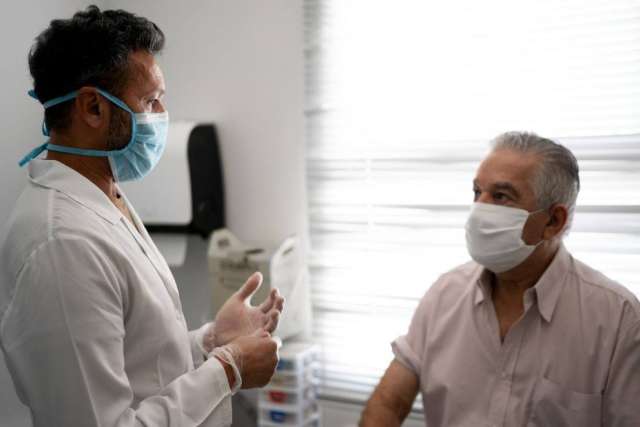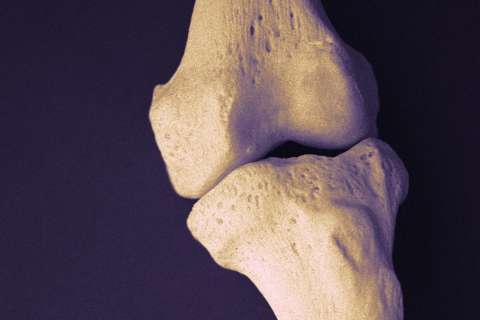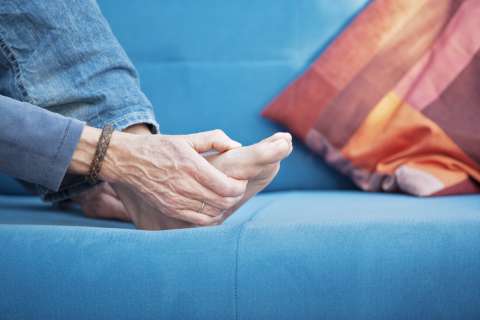Dear Doctor: My husband was in the hospital for three weeks with COVID-19. He’s home again and seems OK physically, but he’s not the same person. He’s withdrawn and angry, and I think he’s depressed. He won’t talk about it to me or our kids. What can we do?
Dear Reader: We’re very glad to hear that your husband has physically recovered from his bout with COVID-19. However, as you are all now experiencing, when someone survives a serious illness, the effects can be wide-ranging. Disease is often more than just the physical symptoms. The resulting stress and distress can have a profound effect not only on the patient, but also on the entire family.
Your husband is recovering from a potentially fatal disease that is both mysterious and, as of yet, has no known cure. His illness has occurred at a time when we are all isolated from one another and cut off from our usual support systems. Throughout the pandemic, even close family members were unable to visit their loved ones’ hospital rooms. This has added a unique burden to what is already a frightening and stressful experience.
It is estimated that up to one-third of patients who survive a serious illness will go on to develop either anxiety or depression. A report published this spring in the journal The Lancet shows that up to one-fourth of patients who have recovered from a COVID-19 infection went on to develop either depression or anxiety. Other studies have estimated that number to be much higher, with up to half of COVID-19 survivors going on to become clinically depressed. Whether this is linked directly to the effects of the virus, or is a psychological after-effect of the illness, is not yet clear.
Your first challenge is to persuade your husband that he can benefit from help. Depression can often be successfully treated with medication, talk therapy or a combination of the two. If suggesting treatment is a conversation you are comfortable having with him, we think it would be a good idea to do so. Speaking with a trusted friend or family member can be helpful, but in regard to seeking medical treatment, your family doctor can be the best place to start, both for the connection with a physician with whom you are comfortable and also to help navigate the behavioral health care system and to maintain routine preventive care.

Depression can be challenging, and an early diagnosis and entry into treatment can help. It’s important to note that, even when someone does go into treatment, feeling better can take time. Medications can take weeks or even months to work, as can becoming comfortable with talk therapy. It will be important for you and your family to be understanding of your husband’s potentially gradual return to a better frame of mind.
Because depression affects everyone around the patient as well, be sure you and your children take care of yourselves. As our world opens up again, make it a point to take part in activities and events that give you pleasure. Encourage your husband to join you. A lot of families are going through the same thing you are, and seeking out a support group to talk things through can be beneficial.
(Send your questions to [email protected], or write: Ask the Doctors, c/o UCLA Health Sciences Media Relations, 10880 Wilshire Blvd., Suite 1450, Los Angeles, CA, 90024. Owing to the volume of mail, personal replies cannot be provided.)





